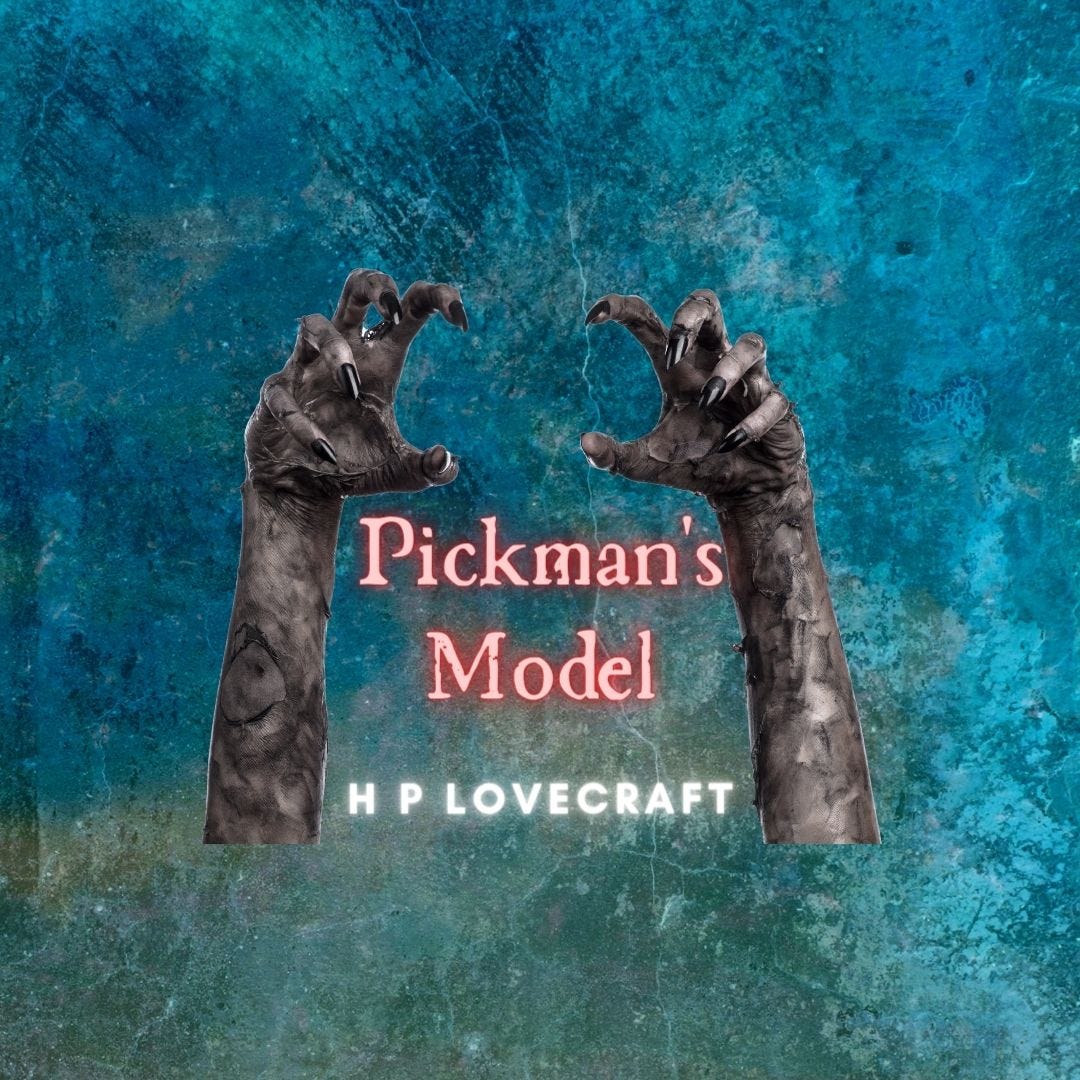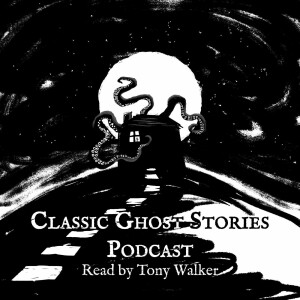
Pickman's Model By H P Lovecraft
This story was written in September 1926 and first published in the October 1927 edition of Weird Tales.
The narrator opens by disclosing that he is frightened to go underground, into the subway or even into a cellar. Then he explains why.
It's to do with Pickman, an artist with an unsavoury reputation.
There are hints that Pickman, whose ancestor was a witch, is related in some sense to the ghouls. Pickman's ancestor was a Salem witch and in the painting where the changeling is being read to by the Puritan, the narrator suggests that the changeling's ghoulish features are reminiscent of Pickman's own.
This suggestion of cursed ancestry is also found in other Lovecraft stories like the case of Charles Dexter Ward.
Lovecraft's ghouls appear in other stories as well. The ghouls honeycomb the hills of Boston are like the Dream Quest of Unknown Kadath. In this story, which was written later, we find Pickman the artist now a fully-fledged ghoul. These ghouls come up through wells and into cellars and basements. Ghouls in Arabic folklore haunt the graveyards and feed on the newly dead.
In The Music of Erich Zann, an artist can summon the creatures of this devilish world that underlies our reality. There is something about the super-sensitive artist who can see into more rarefied worlds than ours. Erich Zann was trying to drive out the evil things from other worlds while Pickman welcomes them, or at least tolerates them. He feels himself superior to them I think because he takes his pistol to one of them at least.
In the Music of Erich Zann the narrator cannot find the house again, and this is so in this story. These strange parts of modern cities lurk like shadows, over a river, or in a little-visited and hazardous neighbourhood. Boston's North End is like Brooklyn's Red Hook. These neighbourhoods are populated with foreigners and honeycombed with tunnels. These edge places are clearly manifestations of Lovecraft's Shadow. These monsters come from places that are liminal and other.
The narrator suggests that Pickman is a relentless enemy of all mankind to take such pleasure in the torture of others as depicted in his art, yet he is a true artist because his art was the art that convinced.
Like Lovecraft himself, Pickman is no sentimental friend of mankind and sees no kindness or joy amongst his fellow humans, only torture and disgust. Lovecraft appreciates that others shun people with this vision, though he depicts them as small-minded and unappreciative of great art and thought. It's a little bit Nietzschean, the superman or Uber-mensch.
The narrator Thurber says that as well as being monstrous, Pickman was a great artist because he painted the truth. The implication is that the truth is that our daylight world lives on a foundation of terrible evil. That is of course a very Lovecraftian view. It's the opposite view of the Romantics like Wordsworth and Thoreau and Voltaire, and if fact the Green movement, who believed that our technological world is the aberration and that the natural world is the source of purity and joy.
Of course for most of human history, survival has been a battle against the horrors of the natural world and in a sense then Lovecraft is a traditionalist and anti-Romantic. Lovecraft's escape is not through nature but through imagination and at times, though not here, his fantasies have a great beauty to them.
The story form is a classic short story with a twist. We, the readers, realise ahead of the narrator (who only twigs when he looks at the photo) that Pickman's monstrous images were not imagination but reality. He presumed that the ghoul was painted from imagination when in fact it is drawn from life.
I have just been reading Robert McKee's book Story. He says in a story where the characters know more than the audience, that is a mystery story, where the characters know more than the audience that is suspense, but here, where the audience knows more (or at least guesses better) that the character that is dramatic irony. Here we have some dramatic irony then.
Notes
Music by The Heartwood Institute
Become A Patreon For Bonus Stories
Or buy me a cup of coffee, if you'd like to keep me working.
This is a public episode. If you’d like to discuss this with other subscribers or get access to bonus episodes, visit tonywalker.substack.com/subscribe
More Episodes
 2022-09-24
2022-09-24
 2022-09-15
2022-09-15
 2022-08-27
2022-08-27
 2022-08-22
2022-08-22
 2022-07-24
2022-07-24
 2022-07-22
2022-07-22
 2022-07-18
2022-07-18
 2022-07-11
2022-07-11
 2022-06-27
2022-06-27
 2022-06-25
2022-06-25
 2022-05-15
2022-05-15
 2022-04-16
2022-04-16
 2022-04-08
2022-04-08
 2022-03-25
2022-03-25
 2022-03-18
2022-03-18
 2022-02-21
2022-02-21
Create your
podcast in
minutes
- Full-featured podcast site
- Unlimited storage and bandwidth
- Comprehensive podcast stats
- Distribute to Apple Podcasts, Spotify, and more
- Make money with your podcast
It is Free
- Privacy Policy
- Cookie Policy
- Terms of Use
- Consent Preferences
- Copyright © 2015-2024 Podbean.com






